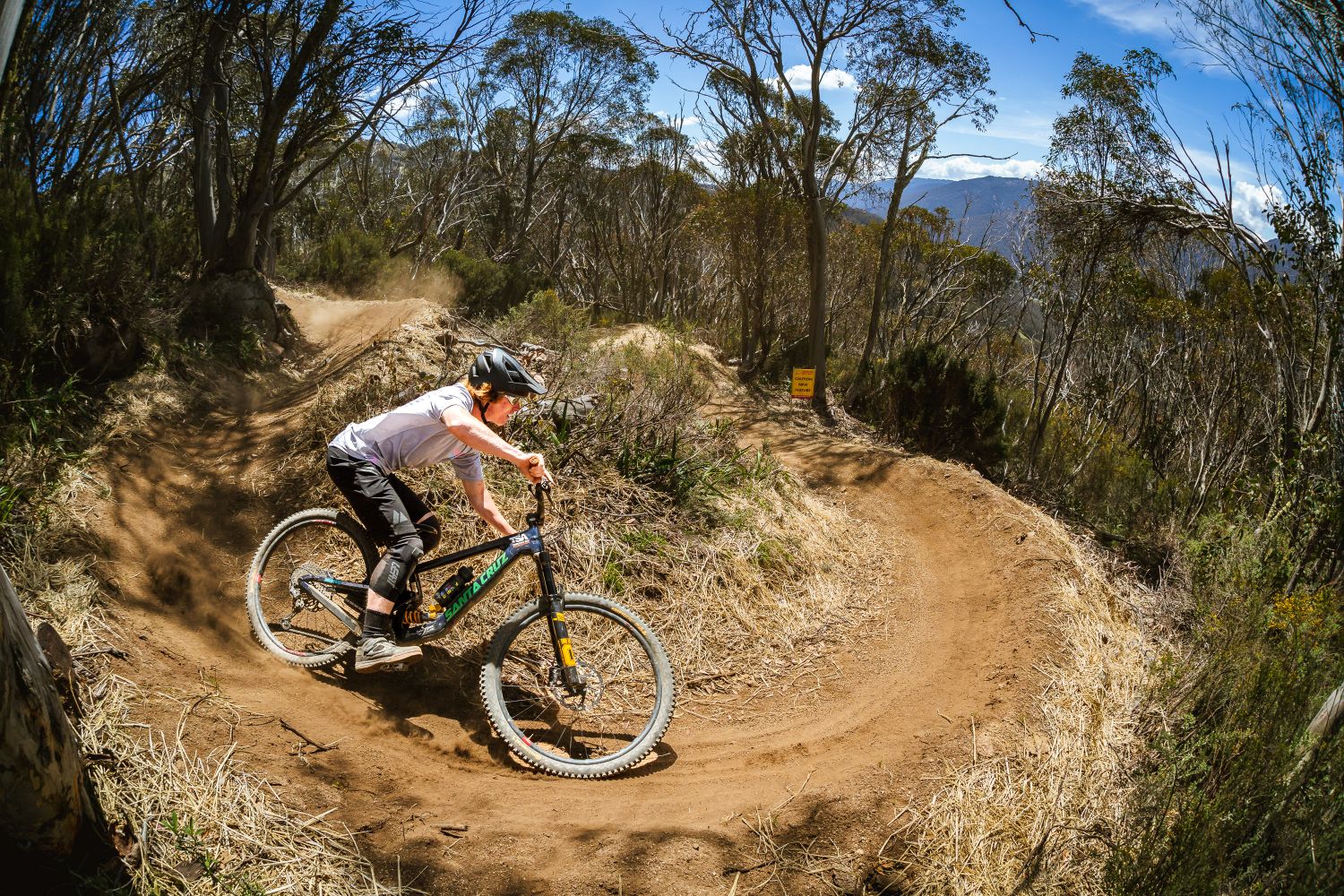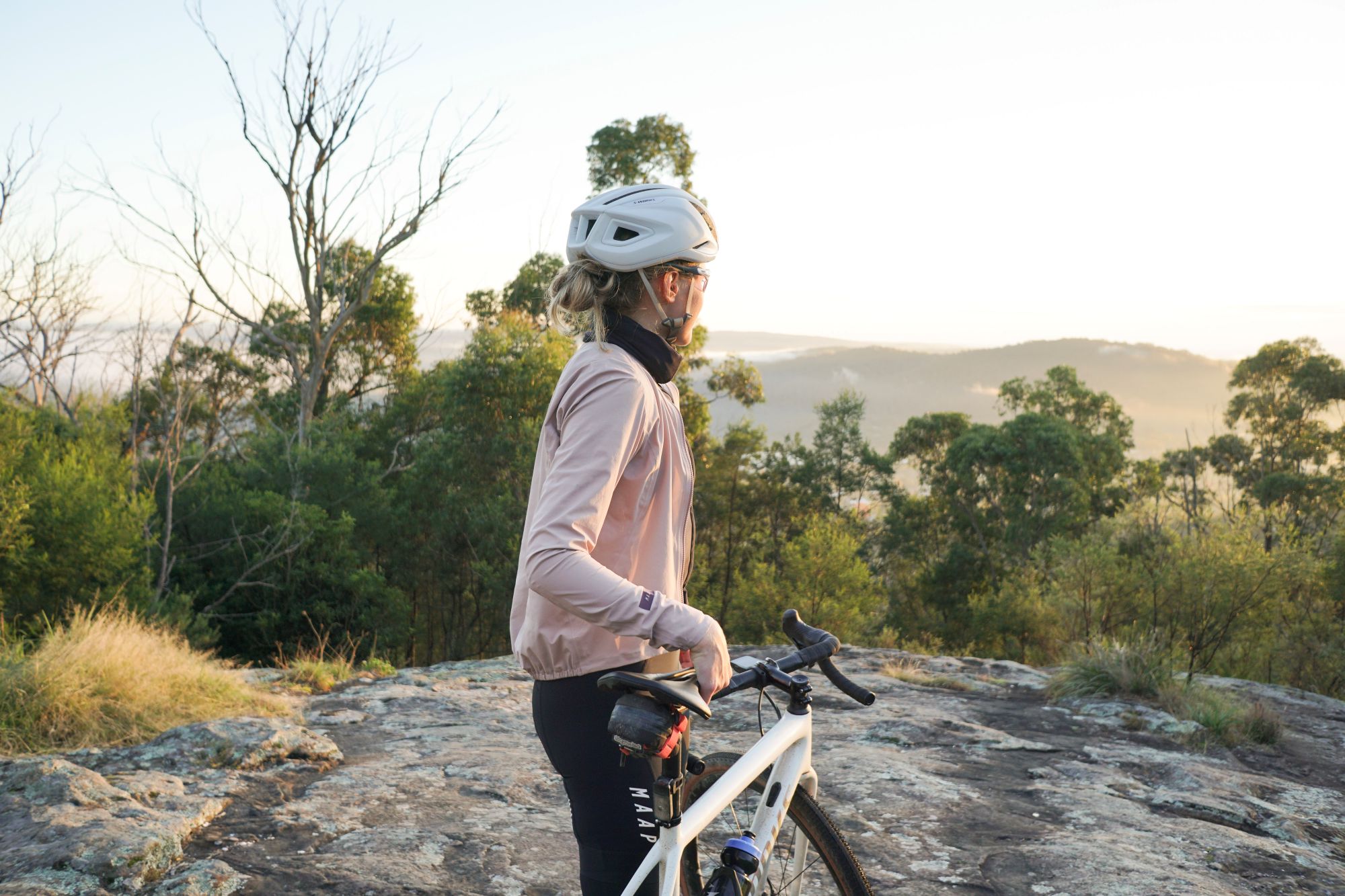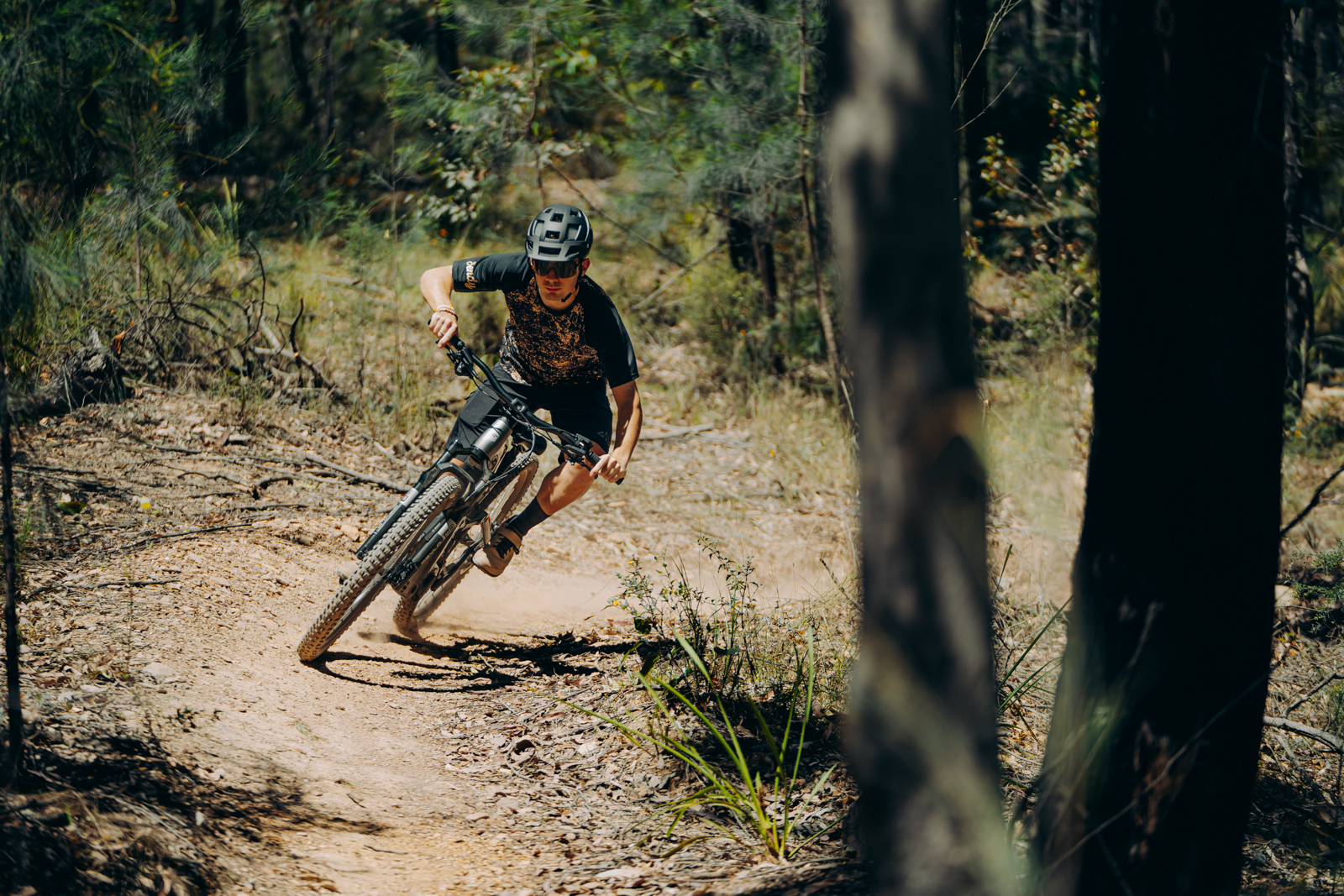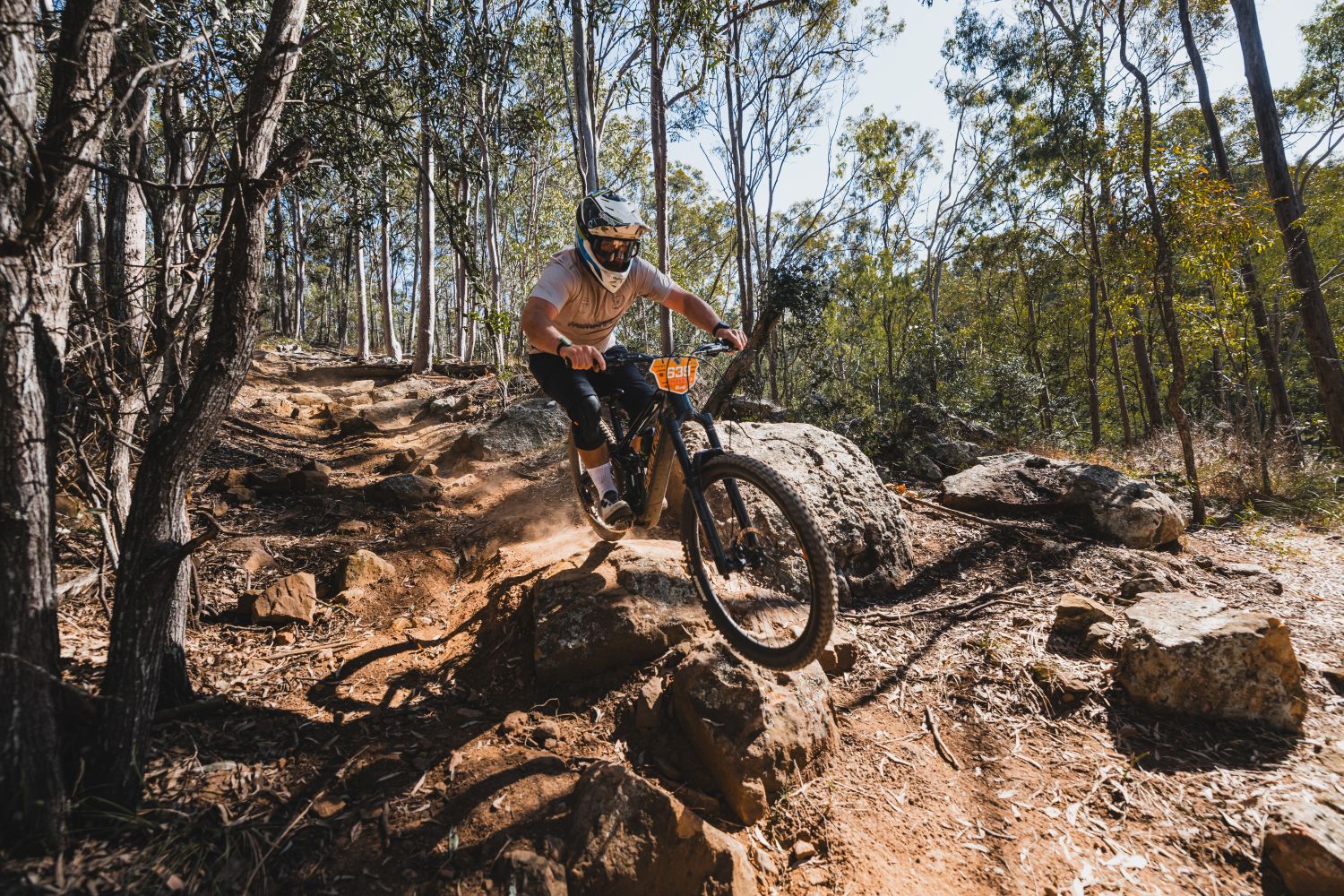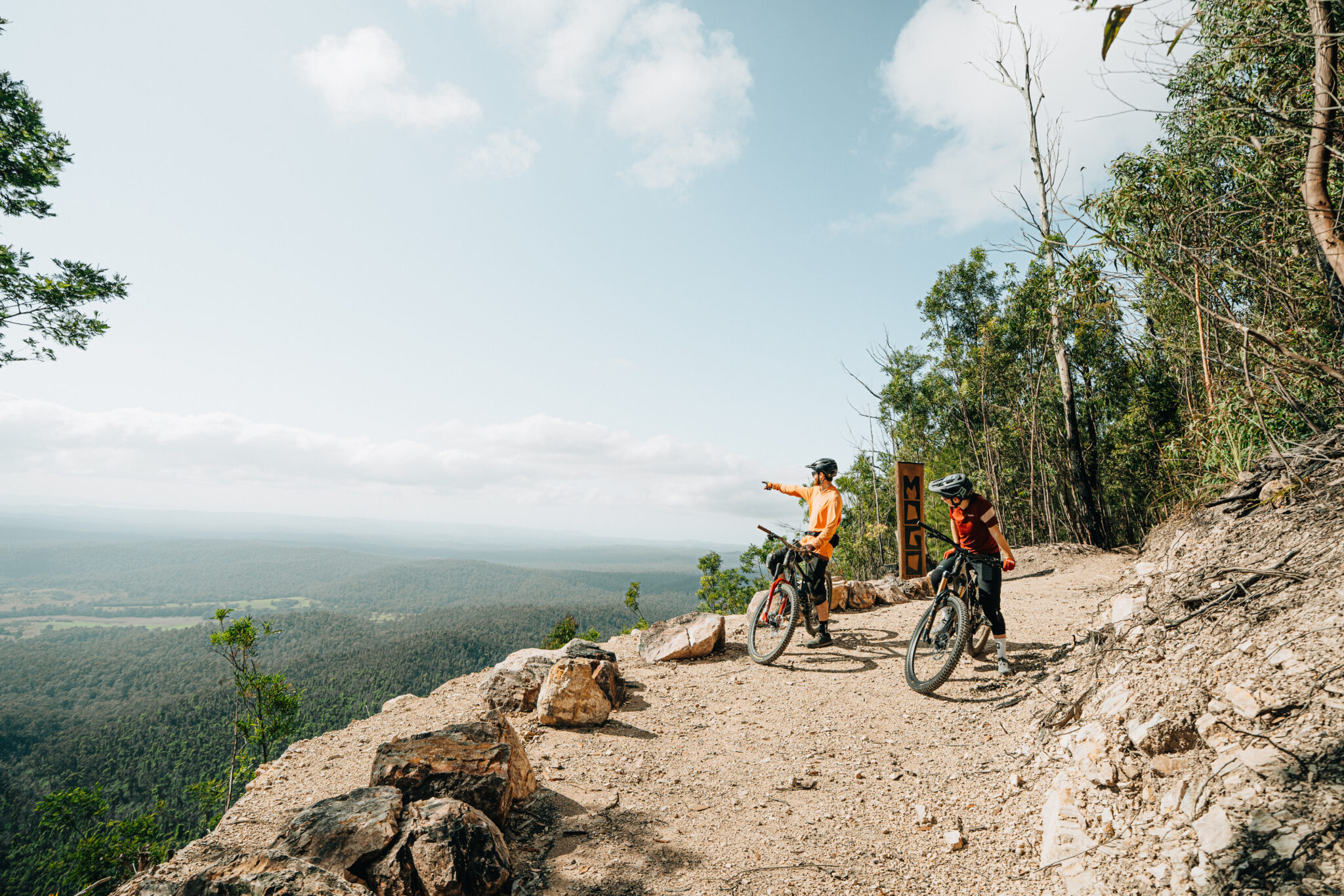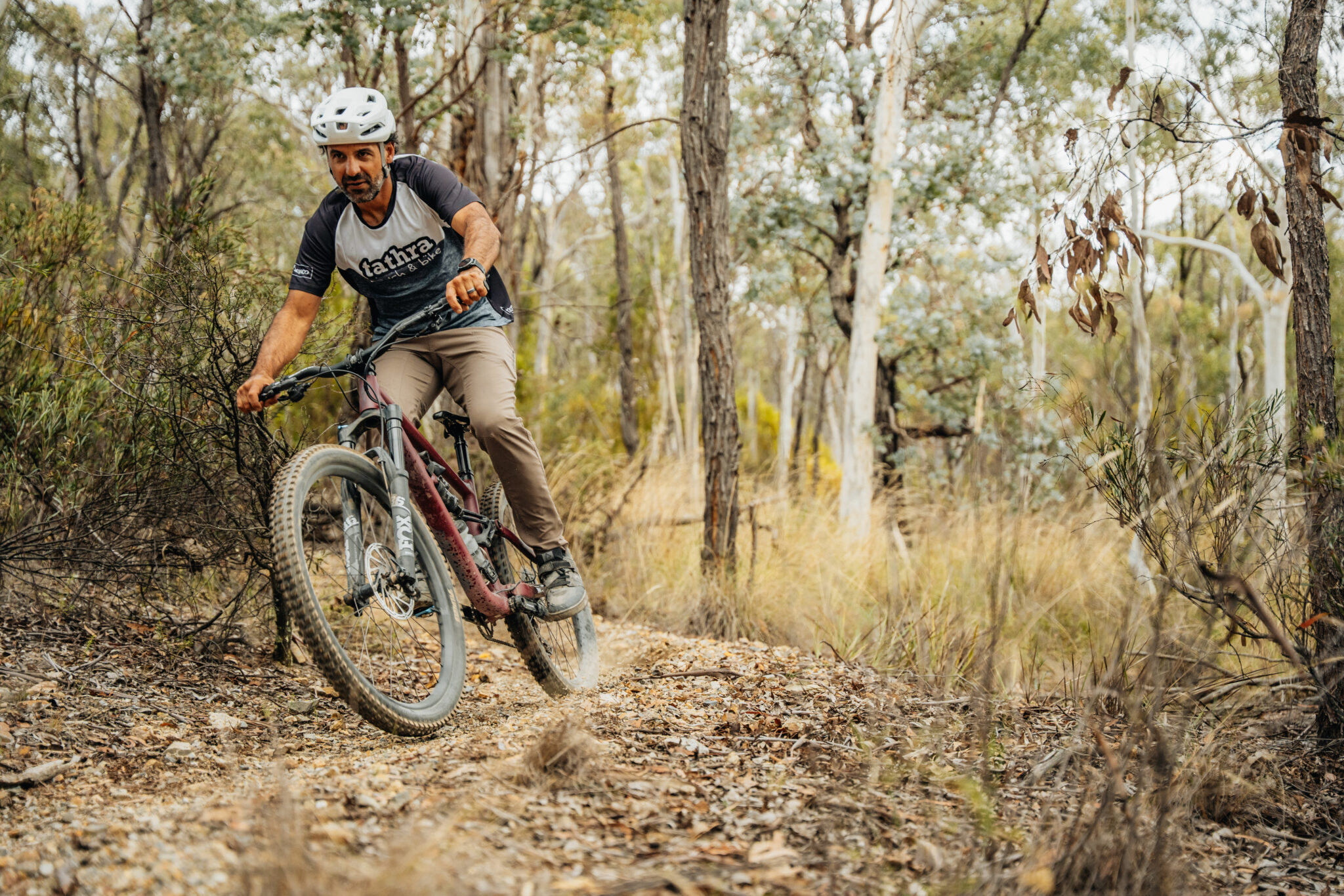Have you ever stood at the top of a trail feature ready to ride, but the fear of trying it for the first time is holding you back? Someone says, “You’ve just gotta commit!” and it’s exactly what you needed to hear. You ride the feature without any drama and find yourself sharing those same words of wisdom with someone else.
More insights from Dr Kath Bicknell
– How to scan a trail while riding
– How saying “No” helps build confidence
– What does it mean to ‘feel’ the trail
So what is it about “You’ve just gotta commit” that is so effective? How does it help with overcoming fear on the bike? And how does it help you connect the dots between knowing what you need to do and actually doing it?
Commitment and coordination
With many trail features, there are sections that we can only practice by actually riding them, so commitment is key. It’s a bit like jumping off a diving board for the first time. You can imagine what shape you want your body to be at the movement’s beginning, middle and end, and you can guide this process along the way. To do this, you must commit to that first step off the diving board and trust in your ability to link a few movements together on the way to the water.
The same goes for riding. You can know the point you want your front wheel to roll over on the entry and the speed you want to carry. Remember to relax and look ahead as you roll through the obstacle. And you can look to the exit and know what shape you want your body to be in when you get there.
When you’re ready, committing helps with coordinating this process. It helps us know what information we need to feel clear about before we set ourselves in motion, and it helps us to relax as we tick those boxes on our first attempt.
The power of trusting in the process
Whether you think it in your head or someone yells it from the side of the trail, “You’ve just gotta commit” is also a phrase that builds trust: trust in our technique, trust in our skills, and trust that the people we’re riding with feel this too.
Trusting in our abilities helps us ride with more purpose and less fear. Fear makes us tense up, so we stop absorbing feedback from the bike and the terrain. We get pinged around, making bike control harder and worries bigger. In comparison, the confidence that comes with committing to an obstacle helps us drop that tension, increasing fluidity and control and our ability to absorb feedback from the bike and the trail.
That trust from others, when warranted, can lift our trust in ourselves, especially if it’s a rider who’s ridden that feature before. The risks of mountain biking are real, and it’s not what a ride buddy will say to someone who’s way out of their depth. They’d be more likely to help you work out the line to ride or problem-solve a mini-skill that connects the bigger movement to nail a high-stakes feature.
A chicken line or opt-out point can also help with commitment – knowing where to put a foot down if needed. This means you can roll into something knowing you have a bail-out point. Having this bail-out point can reduce the inertia involved in trying something for the first time and add extra buffer or room for error if it doesn’t go as smoothly as you hope.
The right cue for the right moment
“You’ve just gotta commit” is one of several little phrases, or cues, that help guide our bodies and brains in sophisticated ways. Knowing why the phrase is so effective helps you know if it’s the right cue to draw on at that point in time: when you’ve picked your line, you’re ready to drop some of the tension holding you back, you feel confident in the steps involved, and you’re ready to connect it all together.
If you feel hesitation creeping in and whether that hesitation is warranted. Trust your preparation, commit when you feel ready, and enjoy the satisfaction of riding something new!
Learn more about using your mind to get more out of your time on the bike from Kath Bicknell at:
Web: intelligentaction.cc
Insta: @Intelligent_Action
Facebook: Intelligent Action


